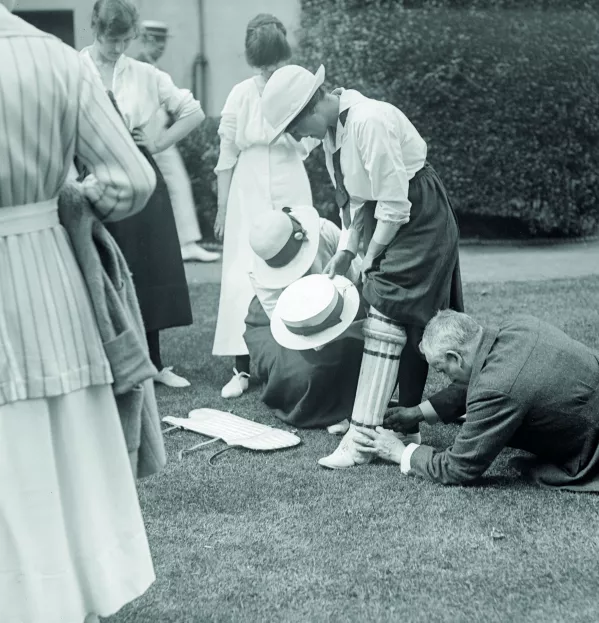Leadership: how to provide useful teacher feedback

Teachers are busy planning lessons as I watch on, confused. Although I manage this team, I am struggling to understand the content of the lessons they are planning. Why? Because this is not the English department (my area of subject expertise), but the maths department - a department for which I have “strategic responsibility” as a senior leader.
One of the biggest challenges of senior leadership is overseeing departments outside of your specialism. An integral part of the role is providing teachers with feedback on what we see them do in their classrooms - a task that becomes significantly harder when you have next to no understanding of the subject matter being taught.
At times, senior leaders will attempt to bluster their way through these observations, believing that their generic teaching and learning experience will be enough to outweigh any subject-knowledge deficits. But generic teaching and learning experience can only take you so far, and this issue is exacerbated by the problematic nature of the lesson observation as a professional development tool in the first place.
In 1999, EC Wragg outlined some of the reliability issues that exist around observations. For instance, as observers, confirmation bias can come into play and, as a result, “we often ‘observe’ what we want to see”. According to Wragg, this subjectivity can result in potentially valuable feedback being received by the recipient with “hostility, resistance and suspicion”.
Research has also shown that many leaders aren’t aware of the limitations of observations as a teacher development method, as a 2012 evidence review by Matt O’Leary found.
In addition, a University of Huddersfield study in 2006 found that trainee teachers place importance on observers being subject specialists. It’s not too much of a leap to suggest that experienced teachers probably feel the same, especially when the insanity of high-stakes lesson grading is involved.
In a recent blog, chemistry teacher Adam Boxer described the experience of being observed by non-specialist colleagues. “It’s incredibly frustrating to be told by someone who doesn’t know your subject that you are teaching it wrong,” he writes. “How can it be that someone can judge my sixth-form marking when they cannot decipher the symbols and equations on the page?”
Navigating feedback
I find it hard to disagree with this. Might I, for example, be able to teach Year 7 maths with some level of academic competency? No. Could I tell you what “sigma” means? No, again. Could I sit a maths GCSE paper and achieve Grade 9? Absolutely not.
And yet, the fact remains that the strategic responsibility for maths at my school rests firmly at my feet.
So what can senior leaders do in this position to navigate the existing limitations of lesson observations as professional development tools, while also taking steps to reassure staff from subject specialisms outside their own that they will be judged fairly and that any feedback they receive will be worthwhile?
Firstly, although I’m not arguing that teachers should only be line-managed by fellow subject specialists, I do think we should carefully consider how we conduct observations, learning walks and work scrutinies. For this reason, I monitor teachers alongside the head of maths.
Secondly, observers need to be reflective and honest about the flawed nature of observations; about the extent to which we can make judgements about subjects we don’t teach; and about the way we deliver feedback in these circumstances. As Adam Boxer suggests, we need to “show some humility” and accept a position of “knowledge inferiority”. By conceding the fallibility of our judgements about subject knowledge, curriculum delivery, and whether the work is challenging, we are more likely to give feedback that will be accepted less grudgingly.
Thirdly, we need to narrow the focus on what we look for when observing outside of our specialism. Evidence, including a 2016 study by Peter Hudson, suggests that observations of one aspect of pedagogy provide deeper, more useful analysis of that practice.
So, what specific areas should non-specialists focus on?
An obvious area is generic teaching and learning techniques that are most likely to be used by effective teachers, such as Rosenshine’s Principles of Instruction. Although, as mentioned above, generic teaching and learning experience can take you only so far when observing outside of your specialism, if the focus is narrow enough, you will still be able to provide useful feedback, as long as you deliver it with humility.
Know your limits
When observing lessons in other subjects, for example, I’ll limit myself to feedback on the quality of explanations and how questioning is used to check for understanding. Or I might look at the use of modelling, and consider the effectiveness of scaffolding.
As well as instruction, I can monitor the teacher’s use of the school’s behaviour policy. And I can provide reliable feedback on a teacher’s general expectations of pupils, which might be illustrated through productivity, attention to detail, or the teacher ensuring pupils aren’t opting out of learning.
Ultimately, the successful line management of another subject requires recognition of our own preconceptions and blind spots, and an acceptance that we might need to listen as much as we speak.
As experienced, hopefully expert teachers, we can offer effective guidance to those outside our specialism. But only if we’re willing to learn as well as offer advice.
Mark Roberts is an assistant principal and English teacher. He tweets @mr_englishteach
This article originally appeared in the 3 May 2019 issue under the headline “Crossing the subject divide as a senior leader”
You need a Tes subscription to read this article
Subscribe now to read this article and get other subscriber-only content:
- Unlimited access to all Tes magazine content
- Exclusive subscriber-only stories
- Award-winning email newsletters
Already a subscriber? Log in
You need a subscription to read this article
Subscribe now to read this article and get other subscriber-only content, including:
- Unlimited access to all Tes magazine content
- Exclusive subscriber-only stories
- Award-winning email newsletters